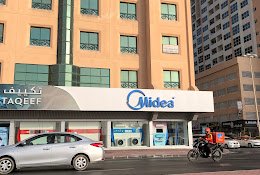Property valuation is one of the most essential processes in the real estate industry, and yet it’s often misunderstood by both first-time buyers and seasoned investors. Whether you’re purchasing your first home, selling an investment property, or considering new off plan projects in Dubai, understanding how property valuation actually works can empower you to make smarter, more strategic decisions.
In this article, I’ll walk you through the key factors that influence valuation, how the process is carried out, and how it particularly applies in rapidly growing markets like Dubai. Having worked closely with valuation professionals and real estate consultants over the years, I can tell you—property valuation is as much a science as it is an art. Let’s unpack it together.
What Is Property Valuation?
At its core, property valuation is the process of determining the current market value of a real estate asset. This value is usually expressed in monetary terms and reflects what a willing buyer would pay a willing seller in a fair market. However, that doesn’t mean it’s just based on gut feeling. Valuation takes into account a complex mix of factors, from location and size to current market trends and future development plans.
Valuation plays a key role in a variety of real estate transactions. Banks use it when approving mortgages. Investors use it to assess return on investment. Developers rely on it to price new off plan projects in Dubai. Even landlords and tenants refer to valuation when setting rental rates.
How Is a Property Valuation Conducted?
A qualified valuer or surveyor typically carries out the property valuation. These professionals are usually licensed and operate under international or regional standards—such as those set by the Royal Institution of Chartered Surveyors (RICS).
The valuation process generally includes:
Physical Inspection: This is where the valuer visits the property (if it’s already built) to evaluate the condition, layout, design, and any features that could affect its value.
Market Analysis: Comparable sales data in the same area or similar neighborhoods is analyzed to identify a realistic price range.
Income Approach: Especially for rental properties or commercial assets, this method estimates how much income the property could generate annually, then calculates its value based on a capitalisation rate.
Cost Approach: For newly built or under-construction properties, the valuer may assess what it would cost to rebuild the property, adjusted for depreciation.
Location-Based Factors: Proximity to schools, transport, retail centers, and other amenities play a significant role in valuation.
The Dubai Real Estate Context
Dubai has a unique and fast-evolving property market. With no income tax and relatively relaxed foreign ownership laws in designated areas, it has become a magnet for international investors. However, this also makes valuation particularly nuanced.
Take new off plan projects in Dubai, for example. These properties are sold before they are constructed, often just based on architectural plans and model units. Valuing such projects is less about the physical inspection and more about future potential. Here, the valuation heavily depends on the developer’s reputation, construction timelines, proposed amenities, and market demand for similar projects in the area.
In fact, many developers in Dubai also include post-handover payment plans, which can influence the market appeal and therefore, indirectly, the perceived value of these projects. Valuers must consider these terms along with broader economic indicators like interest rates, tourism influx, and regulatory reforms when assigning a value.
Common Valuation Methods in Dubai
In practice, different types of properties require different valuation approaches. Here’s how they typically differ:
Ready Properties
For ready-to-move-in apartments or villas, the sales comparison approach is most common. Valuers look at recent sales of similar units in the same building or neighborhood. Adjustments are made for differences in size, view, floor height, and renovation quality.
Off Plan Properties
As discussed, new off plan projects in Dubai involve a more speculative valuation. Since there’s no physical property to inspect yet, valuers rely on projected market performance, developer track record, and surrounding infrastructure development. For instance, if a new metro line or retail mall is being built nearby, it could significantly boost future value.
Commercial Properties
Office buildings, retail outlets, and warehouses are often valued using the income approach. These assets are primarily bought for their income-generating potential, so expected rental yields and long-term lease agreements weigh heavily in the final valuation.
Factors That Can Influence Property Value
Let’s break down a few of the major elements that can either boost or diminish the value of a property.
Location and Infrastructure
This is universally the most important factor. A property near major transport hubs, high-rated schools, shopping centers, and entertainment options generally commands a higher price. In Dubai, areas like Downtown, Dubai Marina, and Palm Jumeirah consistently rank high in terms of value per square foot. However, emerging neighborhoods like Dubai Creek Harbour and Mohammed Bin Rashid City are gaining traction due to new off plan projects in Dubai backed by strong infrastructure plans.
Property Condition and Age
Newer properties typically require less maintenance and feature modern amenities, which can increase their value. That said, a well-maintained older home in a prime location can still fetch a high price.
Amenities and Lifestyle Offerings
Pools, gyms, concierge services, and community parks contribute significantly to valuation. In Dubai, many off plan projects come with luxury features like rooftop lounges, infinity pools, and smart home integration, which further enhance value perception.
Supply and Demand Trends
In a city like Dubai, where new real estate launches are frequent, the balance of supply and demand can shift quickly. During times of oversupply, prices may stabilize or even decline. Valuers must keep an eye on market reports and investor sentiment to provide a realistic picture.
Who Uses Property Valuation Reports?
Valuation isn’t just for buyers and sellers. Here are some of the parties who regularly rely on valuation reports in Dubai:
Banks and Mortgage Providers: Before approving a loan, banks require an independent valuation to ensure they aren’t over-lending.
Investors and Developers: To assess profitability or resale potential.
Government and Regulatory Bodies: For property tax assessments or planning permissions.
Buyers and Sellers: To understand fair market value and negotiate with confidence.
Can You Do Your Own Valuation?
While online tools and property portals like Bayut or Property Finder provide general price trends and comparable listings, a self-assessment is no substitute for a certified valuation—especially when significant money is involved. Still, it’s good practice to research similar properties and understand what drives price differences.
If you’re considering investing in new off plan projects in Dubai, reviewing recent launches, location masterplans, and developer reputations is a smart first step. Visit showrooms, attend property expos, and consult with multiple agents before making a decision.
Final Thoughts: Valuation as a Strategic Tool
Property valuation is more than just a number—it’s a strategic tool that can inform your real estate journey, whether you’re a homeowner, an investor, or a developer. In dynamic markets like Dubai, where things can change quickly and new off plan projects frequently reshape the landscape, accurate valuation becomes even more crucial.
As the city continues to grow and evolve, especially in the lead-up to major global events and the increasing diversification of its economy, understanding how valuation works will not just protect your investment but also help you capitalize on future opportunities. Take your time, consult with qualified professionals, and always align your decisions with long-term goals.
In the end, the more informed you are about the valuation process, the better equipped you’ll be to navigate the ever-changing property market—especially one as exciting and opportunity-rich as Dubai’s.









